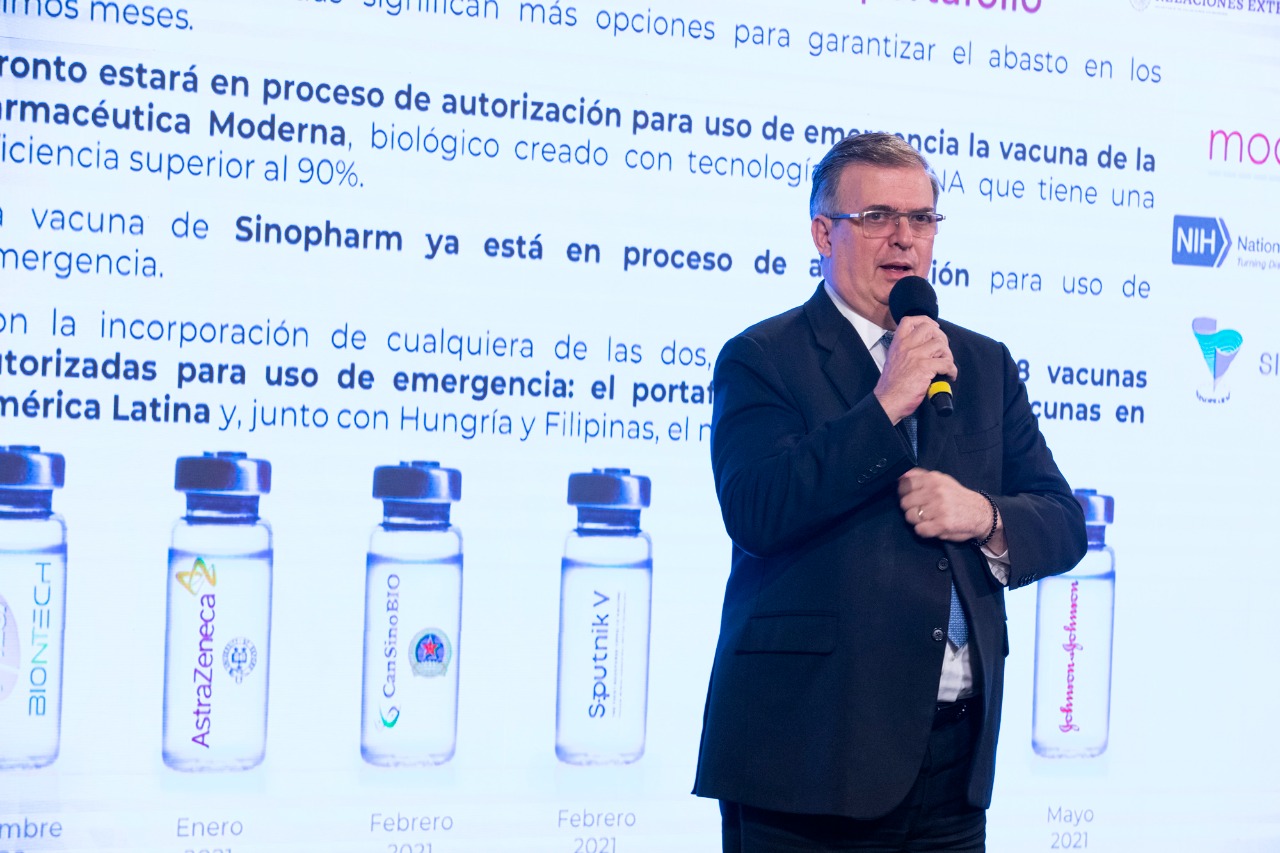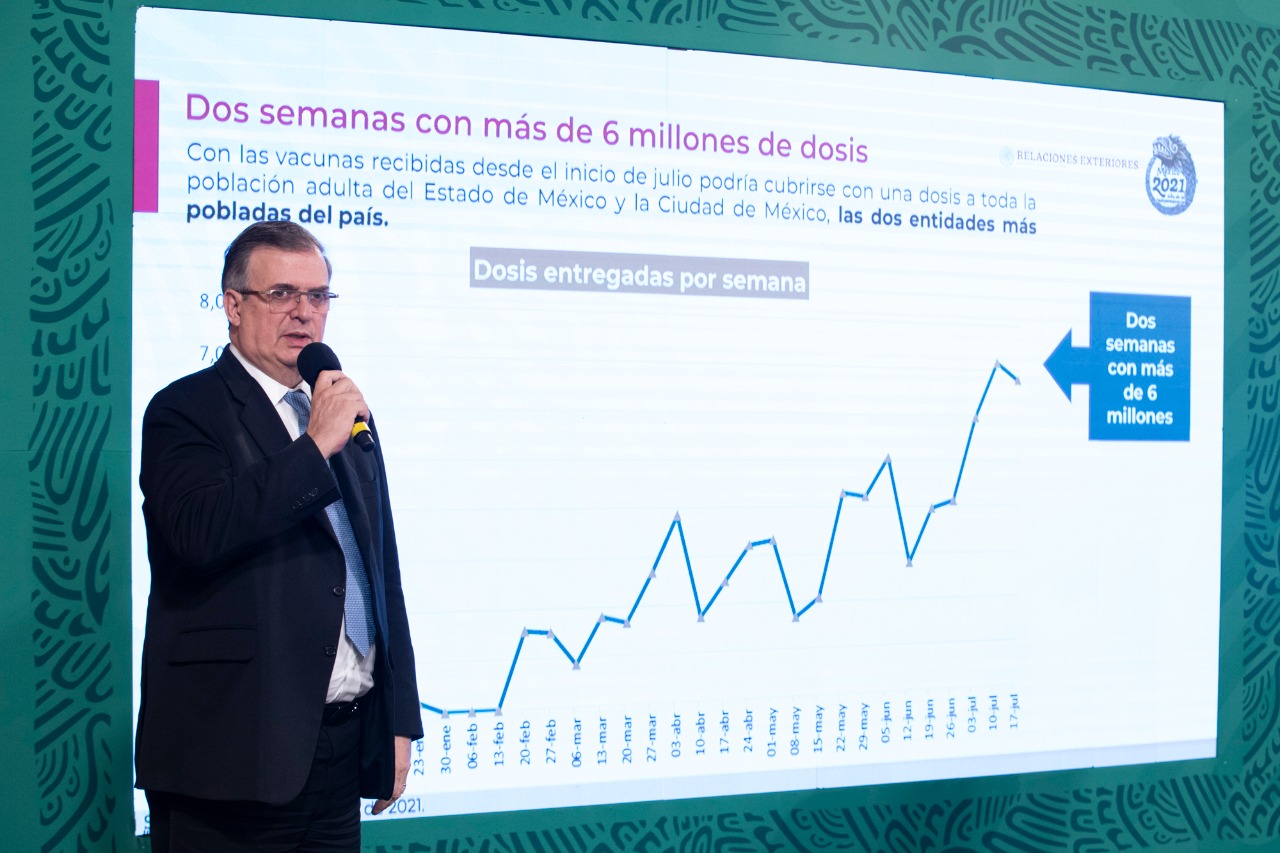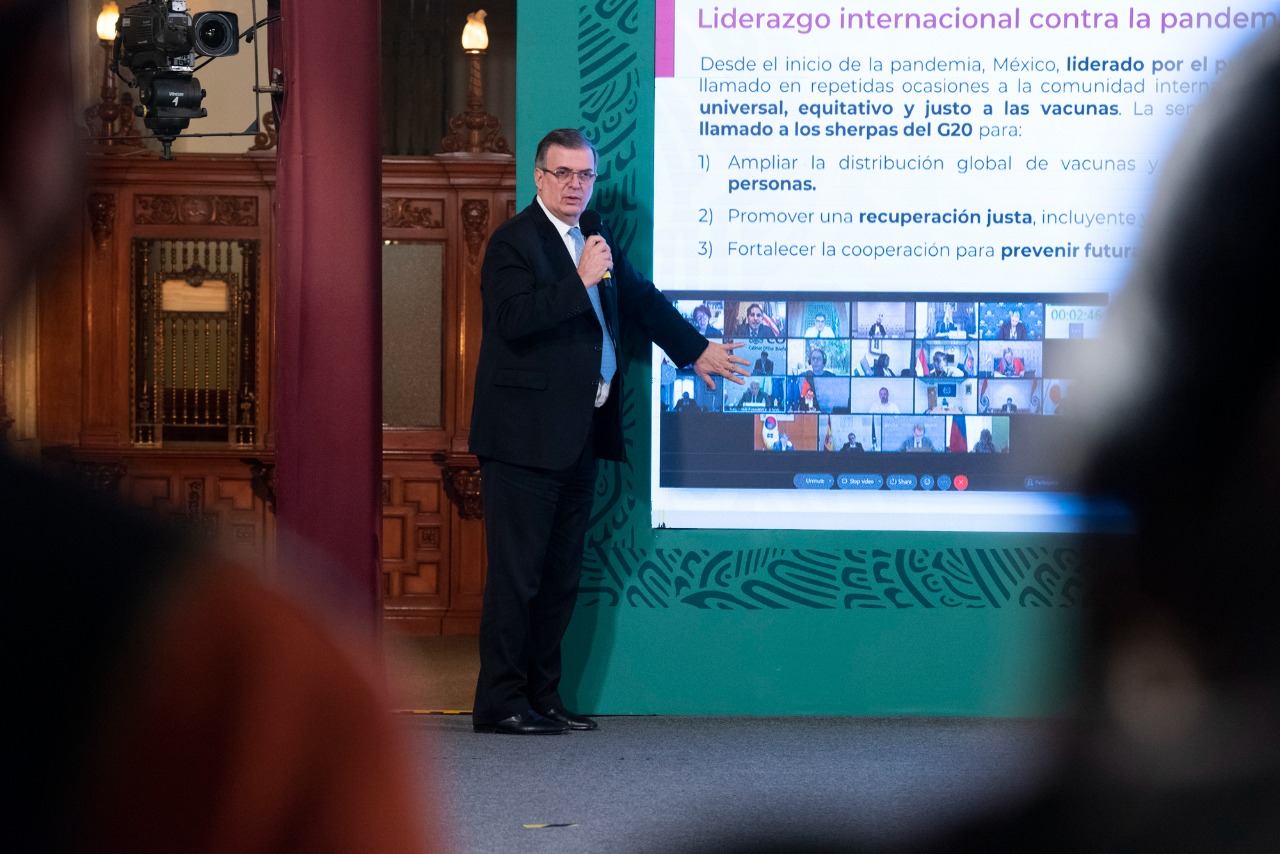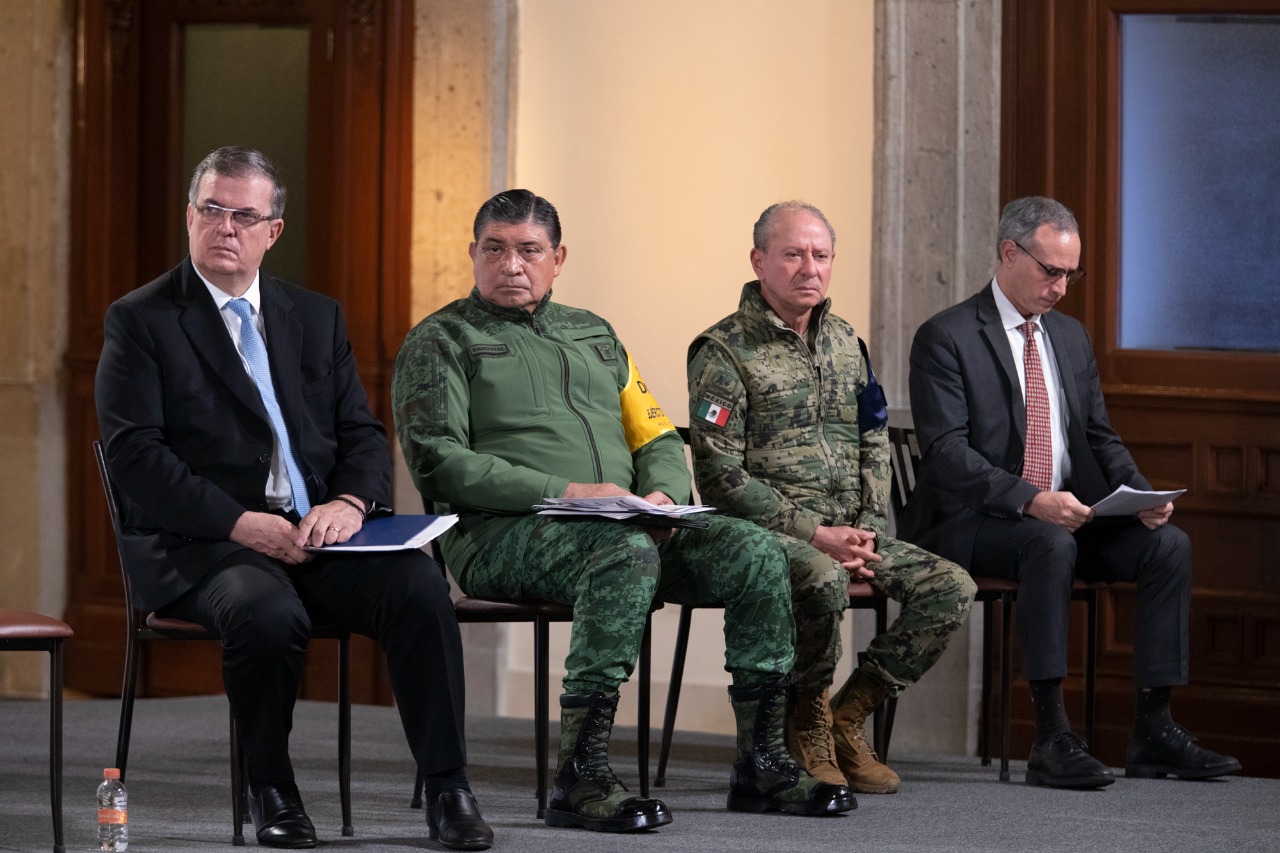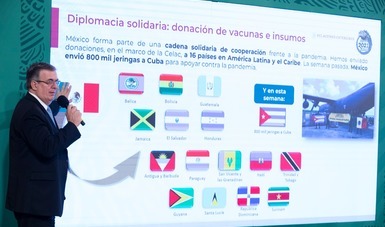- The Mexican Foreign Ministry is working with the health sector to acquire medicines and supplies with Canada, France, Germany, India, Japan and South Korea.
- Cofepris has authorized the Pfizer-BioNTech, AstraZeneca, CanSino, Sputnik V, Sinovac, Covaxin and Janssen vaccines; the Moderna and Sinopharm vaccines are about to start the approval process.
During this morning's press conference led by President Andrés Manuel López Obrador, Foreign Secretary Marcelo Ebrard gave an update on Mexico's COVID-19 vaccine supply strategy. He reported that Mexico recently reached a grand total of 70 million doses since the beginning of the pandemic, with 80 million doses expected by August.
The Foreign Secretary said that Mexico had received more than six million doses of various COVID-19 vaccines for two consecutive weeks. To put that in perspective, the doses received since the beginning of July alone could vaccinate the entire adult population of the State of Mexico and Mexico City, the two most populated areas in the country.
In addition, Secretary Ebrard said that Mexico is one of the countries with the most vaccines authorized by its health authority (the Federal Commission for Protection against Health Risks-Cofepris). This means that there are more options for ensuring a supply of vaccines for the Mexican people in the coming months.
The Foreign Secretary announced that the Moderna and Sinopharm vaccines will soon start the authorization process with Cofepris, now that they have been approved by the World Health Organization (WHO). He said, "Mexico is very attentive to this happening soon. This would give us one of the most comprehensive vaccine portfolios in the world."
He recalled that Cofepris—an agency that has the highest international quality standards—granted its first authorization to the Pfizer-BioNTech vaccine last December; to the AstraZeneca vaccine in January 2021; to CanSino, Sputnik V and Sinovac in February; to Covaxin in April; and, most recently, to Johnson & Johnson's Janssen vaccine in May.
The Foreign Secretary also discussed Mexico's international leadership during the COVID-19 pandemic, in line with the President's instructions. He highlighted the G20 preparatory meeting that took place last week, where Mexico reiterated the call to expand the global distribution of vaccines in order to promote a fair, inclusive and sustainable economic recovery, and to strengthen cooperation and prevent future pandemics.
The Foreign Secretary mentioned Mexico's diplomacy and solidarity and the government's recent donations of vaccines and supplies throughout the region. Mexico has provided 16 Latin American and Caribbean countries with various types of cooperation. For example, 800,000 syringes were sent to Cuba last week to help it administer vaccines. "Following the President's instructions, Mexico has been a key actor in calling for cooperation, but we have also given it, because we can't insist on one thing and do another."
Lastly, the Secretary said that the Mexican Foreign Ministry is working with the health sector to acquire medicines and supplies with countries such as Canada, France, Germany, India, Japan and South Korea. The Foreign Ministry holds weekly meetings with our health authorities and the embassies to coordinate the search and make the contacts needed to import the vaccines.
The Ministry of Foreign Affairs conducts a foreign policy that prioritizes the health of the Mexican people, and it reaffirms its commitment to contributing to universal, timely and equitable access to the COVID-19 vaccine.
